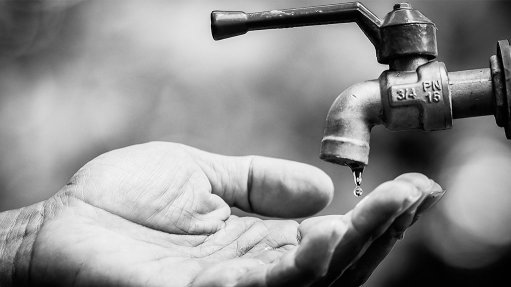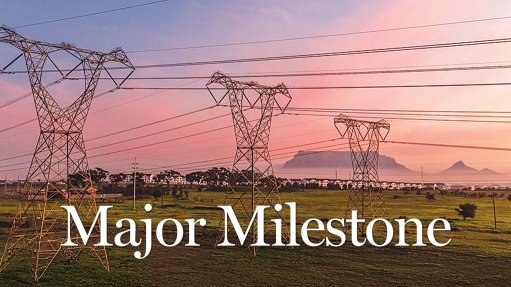West Africa’s junta bloc
The transition is almost complete. Three of West Africa’s new military dictatorships – Mali, Burkina Faso and Niger – have ended their security cooperation with the West, shifted their security allegiances to Russia and cemented their hold on power by ratifying the Alliance des États du Sahel (AES). The three military junta leaders met in the Nigerien capital of Niamey on July 6 to ratify their new federation, which Burkinabe junta leader Ibrahim Traoré declared as the foundation of the country’s true independence.
The new body will have a rotating presidency and inter-Ministerial cooperation to push its objectives, which go beyond security to trade and economic issues.
A somewhat crestfallen leadership at the Economic Community of West African States (Ecowas) bleated that the AES could lead to the fatal weakening of Ecowas – a 50-year-old post-independence bloc that allows for free movement of people, security and intelligence cooperation and which has some $500- million worth of economic projects in the new AES countries. Ecowas’ failed response to the military coup in Niger – threatening a military intervention to restore power to Niger’s then newly elected leader – has created a permanent rift with the AES leadership.
Ecowas’ appointment of Senegalese President Bassirou Diomaye Faye as emissary has improved relations, but Ecowas membership rules that require countries to commit to the principles of democratic government make rejoining unlikely. True to military junta form, the AES leaders have announced how long they intend to stay in office: Mali, 2028; Burkina Faso, 2029; and Niger, indeterminate – or, as one analyst put it, “until they get booted out because that’s what’s going to happen”.
Despite the AES agreement being first and foremost a defence pact, the security situation across the West African region has deteriorated significantly. The AES countries ordered “Western” troops – including the United Nations (UN) mission in Mali – to leave. A total of some 17 200 UN, US, French and European Union troops had all left these Sahelian States by the end of June, and vastly fewer Russian armed forces have arrived in Ouagadougou and Niamey to supplement mercenaries already operating there.
Into the security vacuum left by Western forces has stepped the Islamist extremist and Tuareg separatist groups. Al Qaeda-affiliated Jama’a Nusrat ul-Islam wa al-Muslimin claimed responsibility on June 16 for an attack that killed at least 107 soldiers in Mansila, on the north-eastern border with Niger. Then, early this month, another mass-casualty event took place where the Nigerien army claimed it had killed more than 100 terrorists in the border zone with Mali and Burkina Faso. Despite the AES defence pact and Russia’s official and unofficial involvement, sources say travel outside Ouagadougou and north of Bamako is increasingly dangerous, as Islamist extremist fighters gain ground. One security source said Bamako risked being encircled.
In a few short years, Burkina Faso has moved from being a quiet, secure and stable State with a small problem of Islamist extremist attacks around its borders to a highly insecure State with frequent Islamist attacks. A shooting on June 12 near the national broadcaster in Ouagadougou has put the junta on coup watch, which has seen opposition abductions, a media clampdown, and press-ganging of opponents into the army. Security sources say the military is divided and unhappy, resenting taking orders from a junior officer like Traoré, who has the rank of captain. There are divisions between military and paramilitary police and violence has escalated since Traoré has armed untrained militias who increasingly use their weapons to settle scores or act as vigilantes.
The Nigerien military, while seen as competent, is increasingly being dragged into Burkina Faso’s and Mali’s problems. Defence spending in AES has soared – with Niger recruiting 10 000 new troops to protect its mining areas and Burkina Faso spending $1-billion on buying arms. Both incidents led to a small increase in Russian troop numbers arriving.
Russia’s geopolitical goals in developing strong relations with the AES countries have become apparent as its emissaries feed off the anti-colonial and anti-French sentiment prevalent in these countries. Niger’s junta and uranium mining executives at France’s Orano have been bickering since the coup when Orano couldn’t import essential chemicals or export uranium because of Ecowas sanctions. Tensions reached their peak on June 1 when the junta revoked Orano’s operating licence for its major uranium mine.
Shortly afterwards, representatives of Russia’s State Atomic Energy Corporation (Rosatom) visiting the region with Russian Foreign Minister Sergei Lavrov reportedly offered to acquire Orano’s assets. Rosatom also signed a nuclear energy memorandum of understanding with Burkina Faso. But that is where the development partnership begins and ends. The numbers of Russian military are insufficient to deflect the Islamist extremist threat and there’s little sign of development finance.
Fears that the Russian presence in Mali would lead to expropriation of gold mining assets have been allayed – for now. It seems the military junta seems determined to stay in power but to do so it needs to safeguard government’s main source of revenue – gold production – and production by legitimate well-regulated mining companies. As such, Assimi Goïta ratified a new mining code, which mining companies broadly welcomed as stabilising, despite it allowing for government to take a 10% interest in new projects and granting an option to buy an additional 20% within the first two years of commercial production.
Canada-headquartered Barrick Gold CEO Mark Bristow even announced discussions to increase the firm’s exploration footprint. Local analysts say Russian mercenaries who supported the military takeover of the northern town of Kidal have control of the largest artisanal gold mining area and would have to be satisfied with that. Sources also say that whatever Goïta does, Traoré follows, and so expect a similarly pragmatic approach to leading and revising the mining code. The increased certainty has allowed Canada’s Orezone Gold Corporation to secure $105-million in financing to expand its gold mine in Burkina Faso, to increase production at Bomboré to 170 000 oz in 2026.
While this is comforting for miners, the transition has not been as beneficial for the people of these three Sahelian States, with no end in sight to military rule, a deteriorating security environment and a vastly more self-interested military alliance.
Article Enquiry
Email Article
Save Article
Feedback
To advertise email advertising@creamermedia.co.za or click here
Announcements
What's On
Subscribe to improve your user experience...
Option 1 (equivalent of R125 a month):
Receive a weekly copy of Creamer Media's Engineering News & Mining Weekly magazine
(print copy for those in South Africa and e-magazine for those outside of South Africa)
Receive daily email newsletters
Access to full search results
Access archive of magazine back copies
Access to Projects in Progress
Access to ONE Research Report of your choice in PDF format
Option 2 (equivalent of R375 a month):
All benefits from Option 1
PLUS
Access to Creamer Media's Research Channel Africa for ALL Research Reports, in PDF format, on various industrial and mining sectors
including Electricity; Water; Energy Transition; Hydrogen; Roads, Rail and Ports; Coal; Gold; Platinum; Battery Metals; etc.
Already a subscriber?
Forgotten your password?
Receive weekly copy of Creamer Media's Engineering News & Mining Weekly magazine (print copy for those in South Africa and e-magazine for those outside of South Africa)
➕
Recieve daily email newsletters
➕
Access to full search results
➕
Access archive of magazine back copies
➕
Access to Projects in Progress
➕
Access to ONE Research Report of your choice in PDF format
RESEARCH CHANNEL AFRICA
R4500 (equivalent of R375 a month)
SUBSCRIBEAll benefits from Option 1
➕
Access to Creamer Media's Research Channel Africa for ALL Research Reports on various industrial and mining sectors, in PDF format, including on:
Electricity
➕
Water
➕
Energy Transition
➕
Hydrogen
➕
Roads, Rail and Ports
➕
Coal
➕
Gold
➕
Platinum
➕
Battery Metals
➕
etc.
Receive all benefits from Option 1 or Option 2 delivered to numerous people at your company
➕
Multiple User names and Passwords for simultaneous log-ins
➕
Intranet integration access to all in your organisation


















